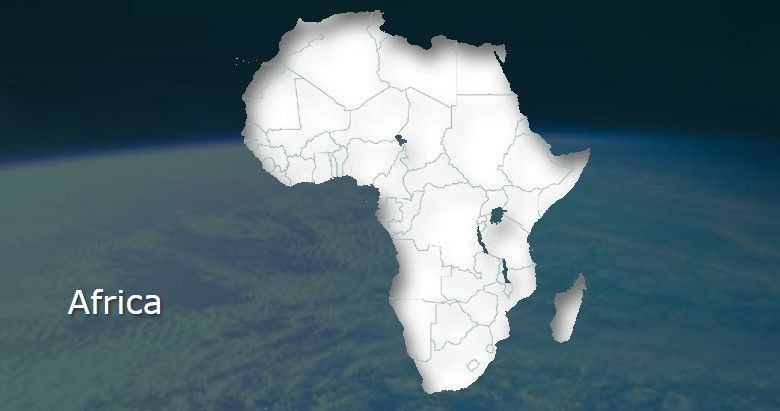
AFRICAN leaders and parents are not fully investing in abundant natural resources to create career paths for their children.
Academic learning and performance have been taken to determine the future of every child yet formal education systems are not fully tailored to maximise inherent capacities, traits and gifts which children are born with. Ideally, career choices should be influenced largely by in-born traits and passion not academic performance.
A lot could be learnt from African tradition that had its own ways of identifying talents, gifts and passions within children from a tender age.
It was not by chance that parents supported their children in line with talents and noticeable skills. Children who grew up to become artisans, herbalists, farmers, livestock breeders or traders were supported based on natural gifts and skills meticulously identified at a tender age.
Diverse skills and talents within children ensured society had strengths in every important career.
Even to date, that situation is typical of many African families where young people gifted in farming skills, traditional healing, livestock breeding and other skills are recognised and supported by family members and the whole community.
Education curricula should guide socio-economic transformation
It makes sense for African policymakers to ensure education curricula is guided by a country’s transformational development pathways. For instance, African history studied in schools should be about the history of the socio-economic and politics of African communities including how the old generation used history to define economic development. How was culture and tradition related to economic development? Economic development pathways in most African countries are revealing themselves through mass food markets as well as micro, small and medium enterprises (MSMEs). Education curricula should respond accordingly. For instance, how do subjects like geography and history apply to mass markets and MSMEs? To what extent are schoolchildren mastering indigenous commerce within African mass markets and the burgeoning MSMEs sector?
- Open letter to President Mnangagwa
- Feature: ‘It’s worse right now than under Mugabe’: Sikhala pays the price of opposition in solitary cell
- Masvingo turns down fire tender deal
- Human-wildlife conflict drive African wild dogs to extinction
Keep Reading
With a booming construction industry, studies in schools and colleges should mirror what is happening in the construction industry in terms of equipment and related technologies. Some children should be getting into traditional medical practice which remains untapped and largely ignored as backward yet the majority of people depend on it. Mining is another theme that should be studied right from primary school so that the mining industry is not left to panners when engineers are available. Education and learning should not be about being in class because as children grow, they want to explore other fields in the environment.
Case for building relevant industries
As African countries restructure education curricula, there is need to establish industries where students will spend 70% of their time practising knowledge at an early age. That will provide foresight about the industry around which they can build their careers. African countries cannot continue depending on foreign-driven academic content. Young people should start appreciating the importance of indigenous medicine from an early age as that will trigger an appetite for researching and preserving traditional medicine as a career. Unfortunately, this rich knowledge has not been taken to be part of the curricula. Those studying medicine know very few traditional medicines and some children grew up in the city and only went to universities after scoring high points in sciences.
The development pathway of African industry can also start at secondary school where some students start doing practical subjects like welding and carpentry. Unfortunately, those who study these subjects are considered for less gifted yet that is what is needed in the real industry. The requirements for getting into polytechnics exclude practical subjects while the academically gifted go on to do engineering, leaving those who were doing building on the basis of failing English. This is how academic performance is being used to disqualify those that cannot out-compete the academically gifted. The screening process of getting into institutions of higher learning is rendering the majority redundant at a time when there is no industry. By not creating an industry that absorbs more than 70% of children who do not pass ordinary level, African countries are creating structural unemployment.
Instead of building industries that unlock children’s gifts and traits. policymakers and parents are pouring a lot of resources into making their children academically excellent. For instance, there is no industry for rural school-leavers who are good at farming. A vocational training centre is useless without an industry to absorb the graduates.
From economies dominated by educationists to succession pathways
With limited focus on industrial development, African leaders are creating economies dominated by educationists where emphasis is more on academic qualifications yet there is scarce proof that PhDs and masters drive an economy more than MSMEs. More importantly, it appears African policymakers have failed to make the education system achieve return on investment (ROI) because there is no model for achieving ROI. For the young generation, education is associated with office work and white-collar jobs. This can be corrected when industrial education starts from primary school to build an industrial mindset. In schools there should not just be a laboratory for scientific experiments but an industrial park equipped with a whole set of components found in industry. Tailoring and weaving machines should be in schools while historians can focus on culture to create relevant industries.
Meanwhile, the whole African agricultural sector does not have a succession plan as an economy. This is a policy issue which should move from emphasis on just owning land to developing industrial farming with a huge component of agroecology and smart agriculture. Young people working for agricultural parastatals or any enterprise should feel the same as those employed by a bank.
- Charles Dhewa is a proactive knowledge broker and management specialist







